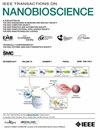A Novel Linear Machine Learning Method Based on DNA Hybridization Reaction Circuit
IF 4.4
4区 生物学
Q1 BIOCHEMICAL RESEARCH METHODS
引用次数: 0
Abstract
DNA hybridization reaction is a significant technology in the field of semi-synthetic biology and holds great potential for use in biological computation. In this study, we propose a novel machine learning model based on a DNA hybridization reaction circuit. This circuit comprises a computation training component, a test component, and a learning algorithm. Compared to conventional machine learning models based on semiconductors, the proposed machine learning model harnesses the power of DNA hybridization reaction, with the learning algorithm implemented based on the unique properties of DNA computation, enabling parallel computation for the acquisition of learning results. In contrast to existing machine learning models based on DNA circuits, our proposed model constitutes a complete synthetic biology computation system, and utilizes the “dual-rail” mechanism to achieve the DNA compilation of the learning algorithm, which allows the weights to be updated to negative values. The proposed machine learning model based on DNA hybridization reaction demonstrates the ability to predict and fit linear functions. As such, this study is expected to make significant contributions to the development of machine learning through DNA hybridization reaction circuits.一种新的基于DNA杂交反应电路的线性机器学习方法。
DNA杂交反应是半合成生物学领域的一项重要技术,在生物计算领域具有巨大的应用潜力。在这项研究中,我们提出了一种新的基于DNA杂交反应电路的机器学习模型。该电路包括计算训练组件、测试组件和学习算法。与传统的基于半导体的机器学习模型相比,本文提出的机器学习模型利用了DNA杂交反应的力量,并基于DNA计算的独特性质实现了学习算法,可以并行计算获取学习结果。与现有的基于DNA电路的机器学习模型相比,我们提出的模型构成了一个完整的合成生物学计算系统,并利用“双轨”机制实现了学习算法的DNA编译,允许权重更新为负值。提出的基于DNA杂交反应的机器学习模型具有预测和拟合线性函数的能力。因此,本研究有望通过DNA杂交反应电路为机器学习的发展做出重大贡献。
本文章由计算机程序翻译,如有差异,请以英文原文为准。
求助全文
约1分钟内获得全文
求助全文
来源期刊

IEEE Transactions on NanoBioscience
工程技术-纳米科技
CiteScore
7.00
自引率
5.10%
发文量
197
审稿时长
>12 weeks
期刊介绍:
The IEEE Transactions on NanoBioscience reports on original, innovative and interdisciplinary work on all aspects of molecular systems, cellular systems, and tissues (including molecular electronics). Topics covered in the journal focus on a broad spectrum of aspects, both on foundations and on applications. Specifically, methods and techniques, experimental aspects, design and implementation, instrumentation and laboratory equipment, clinical aspects, hardware and software data acquisition and analysis and computer based modelling are covered (based on traditional or high performance computing - parallel computers or computer networks).
 求助内容:
求助内容: 应助结果提醒方式:
应助结果提醒方式:


